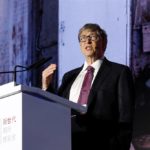
While the assessment of soil and rock is a critical first step in understanding our environment, the technology used, gamma-ray spectrometry, also holds immense, largely untapped potential for Nigeria’s health sector.
We spoke again with physicist Ikenna Odezuligbo to explore how this science can be applied to improve medical diagnostics, strengthen cancer treatment, and enhance safety within our healthcare system.
Odezuligbo, your work clearly shows the value of gamma spectroscopy for environmental safety. How can this same technology be a game-changer for the Nigerian health sector?
At its core, gamma-ray spectrometry is the science of detecting and identifying unique energy “fingerprints” from radioactive sources. While we’ve used it to study soil, the same principles can be applied in hospitals: to verify the radiation sources used for treatment, to support imaging systems that look inside the body, and to keep patients and staff safe. It’s a versatile foundation that can strengthen diagnosis, therapy, and overall safety in Nigerian healthcare.
Could you elaborate on its role in medical diagnosis? How does it help doctors see what’s happening inside a patient?
This is the basis of nuclear medicine. Doctors administer a tiny, safe amount of a radioactive substance, called a tracer, into the body. This tracer is designed to collect in a particular organ, such as the heart or thyroid, or even in tumors.
A gamma camera, which is built on the principles of gamma-ray detection, picks up the signals from that tracer. Computers then reconstruct these signals into images that show how the organ is actually working. Unlike a regular X-ray, which gives a static picture, this shows live metabolic activity. For example, it can help detect cancer early, assess heart damage after a heart attack, or study brain function.
Beyond diagnosis, you mentioned it plays a role in cancer treatment. How so?
In radiotherapy, accuracy and safety are everything. Treatment machines rely on controlled radioactive sources, and we must be absolutely sure these sources are the right ones and have the correct activity.
This is where gamma-ray spectrometry comes in. It verifies the identity and strength of the radiation source itself, making sure the beam is right at its origin. After that, other specialised tools, such as dosimeters, are used to confirm the exact dose that will reach the patient. Both steps are essential, and spectrometry provides the first layer of quality assurance.
So it’s used in imaging and in checking treatment machines. Are there other safety applications in hospitals?
Yes. Hospitals must be safe not only in treatment but also in their physical environment. Building materials like granite, cement, or tiles can sometimes contain naturally radioactive elements. Spectrometry can screen these materials to prevent long-term exposure risks for patients and staff.
It’s also vital for managing radioactive waste from hospitals, such as syringes or patient excreta after certain treatments. By characterising this waste, spectrometry ensures it is properly stored, segregated, and disposed of, protecting both the public and the environment.
What is your vision for the future of this technology in Nigeria? What would it take to expand its use?
The long-term goal is to expand nuclear medicine and radiotherapy capabilities beyond the few existing centers, such as those in Ibadan and Abuja, into more teaching and specialist hospitals across the country. But this cannot happen overnight.
It will require sustained investment in equipment and infrastructure, reliable supply chains for radiopharmaceuticals, and strong regulatory oversight. Most importantly, we need to invest in people: training medical physicists, nuclear medicine physicians, and radiation safety officers. Each trained professional is a building block toward a stronger healthcare system.
With the right strategy, Nigeria can steadily build a future where advanced nuclear medicine services are not a rarity, but a routine part of healthcare available to all.
Finally, what keeps you motivated to push for this vision, despite the challenges?
What keeps me going is the belief that every Nigerian deserves access to the same quality of care found anywhere in the world. When I see patients travelling abroad for cancer treatment or waiting too long for a diagnosis, I am reminded that we have the knowledge and the talent here; we only need to nurture it.
My hope is that in the future, a Nigerian family facing cancer or heart disease will not have to look outside the country for answers. They will walk into a local hospital and find world-class care backed by science, technology, and trained professionals. That possibility, more than anything, is what drives my work.
ALSO READ TOP STORIES FROM NIGERIAN TRIBUNE
WATCH TOP VIDEOS FROM NIGERIAN TRIBUNE TV
- Let’s Talk About SELF-AWARENESS
- Is Your Confidence Mistaken for Pride? Let’s talk about it
- Is Etiquette About Perfection…Or Just Not Being Rude?
- Top Psychologist Reveal 3 Signs You’re Struggling With Imposter Syndrome
- Do You Pick Up Work-Related Calls at Midnight or Never? Let’s Talk About Boundaries






